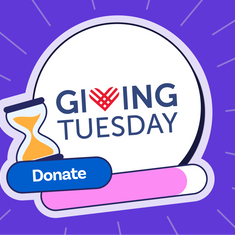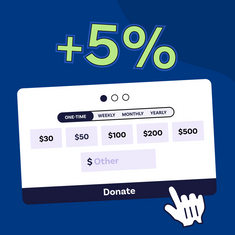
Trust-based relationships are key to donor acquisition and retention. Follow our 3 strategies to ensure your donors become loyal supporters of your cause.
Most fundraising professionals would agree that building and maintaining relationships with donors is the foundation of every successful fundraising campaign.
Most fundraising professionals would also agree that it is not always an easy task to accomplish.
As they say, relationship building is an art, not a science.
While there are various different types of relationships in the fundraising world, nonprofits should focus specifically on building trust based relationships with their donor base.
Trust based relationships are built on principles such as open and honest communication, reliability, consistency, vulnerability, and genuine care and compassion. Your aim is to ensure a donor has both a belief in your mission and vision, and the confidence you will use their money responsibly. The end goal is to have a relationship with mutual trust and understanding between both parties - think of it like a 50/50 partnership.
Not only will trust based relationships aid in both donor acquisition and donor retention - they also open up your supporter base to so much more than donations, think; sponsorships, volunteers, and lifelong advocates.
Let’s look at some specific strategies nonprofits can use to build trust-based donor relationships and how best to implement them.
#1 - Two Way Communication
Effective communication is a two way street and that rings especially true in trust based relationships.
We all know that open, and honest communication to your donor base is important. Donors give to create an impact, and it is up to your organisation to ensure this is properly communicated. Regular emails, social media posts, and yearly reports tend to cover this part well. More intimate communication methods like phone calls and handwritten cards work too.
Communicating to your donor base is just as important as communicating with your donor base. You need to create listening opportunities and spaces for donors to give feedback, tell their stories, and understand their motivations for donating.
To improve two way communication, try:
- Sending out a monthly or quarterly Donor Survey to collect feedback.
- Creating in-person donor events
- Include a Call to Action on all your donor communication materials, encouraging them to call or email with their questions, comments, or concerns.
#2 - Prioritise Transparency
A trust based relationship cannot be built without honesty, and in the nonprofit world, organisational transparency is key.
Put yourself in the donor’s shoes for a moment and think - would you yourself donate to a charity that did not have measures in place to ensure accountability? How would you feel if you had no idea where or to whom your money was going?
These are the details that donors look for when selecting a charity, and it is essential to establish transparency policies as early as possible.
All organisation financial statements and expense records should be up to date and easily accessible on your website.
Your website should also include up to date information on your organisation’s management and governance. Have a section on your website dedicated to providing information about your board of directors, senior leadership, and any committees or volunteers that are responsible for making decisions for the organisation.
You may also consider joining a standards program like Nonprofits First (USA) or Imagine Canada (Canada) where you can earn accreditation for your transparency standards.
#3 Personalise your Appreciation
With all the great technology out there for nonprofits, it’s easy to set it and forget it when it comes to stewardship communications.
But going the full automation route is not going to do you any favors when trying to build trust based relationships.
A donor wants to know that their donation is meaningful, appreciated, and is going to make a difference - and it’s up to you to convey that message to them.
Personalising your appreciation means going beyond an auto-generated email. Each donor should have a different donor experience customised to them. Actions like a quick thank you phone call or sending a handwritten card may be time consuming, but sure to generate a great return.
With the right strategies in place, nonprofits can build trust-based relationships with donors and supporters that will last for years to come.
For more tips on building donor relationships, check these other posts from the Raisely blog:
How to thank donors: Ideas for every occasion
6 Donor retention strategies you need to know
Donor acquisition strategies: The ultimate guide for charities
Ready to create your
next campaign?

Account Executive at Raisely.




